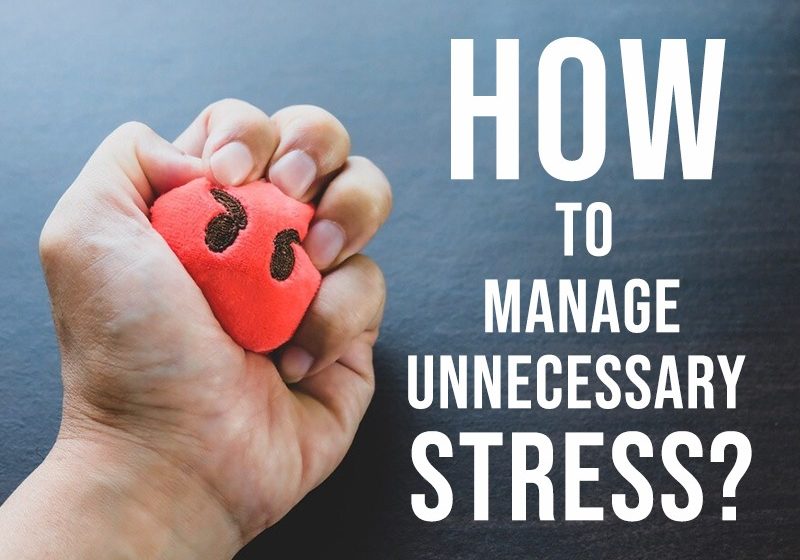How to Manage Unnecessary Stress?

Like demons behind the curtains, unnecessary stress is stealing the peaceful sleep time of nearly 70% of people around the world. The intensity of psychological stress and anxiety can vary, ranging from causing nervousness and increased heart rate to sabotaging your confidence and denting your self-esteem.
Thankfully, managing stress isn’t something only psychologists can do. Here are a few easy ways to relieve stress.
Learn to move on
This, too, shall pass.
Your boss is coming at you every day, your wife has a fever, and your debt is piling up. There’s no way to skip stressful situations. But letting the stress take over your head can lead to excessive worry and dread.
The primary step towards managing step is to understand that though things may be bad, they will pass. There’s the night after the day, so hang in there. Accept the situation, be a fighter, and emerge out of it better and stronger.
Practice self-soothing techniques
Whenever anxiety hits you, stop whatever you’re doing. Close your eyes, take a deep breath, and imagine being on a lonely island. Feel the noise of the waves hitting the coast, the birds chirping, the sun shining bright. Feel the freshness in the air, the cold breeze kissing your face as you stroll by the sea.
Before you even realize, your breathing will slow down, your adrenaline levels will lower, and your heart will stop racing.
Self-soothing techniques are one of the excellent ways to relieve stress and anxiety. Some other self-soothing techniques are:
- Positive self-talk
- Muscle relaxation
- Diaphragmatic breathing
Keep a check on your diet
What we eat and drink has a substantial impact on your mental state. Foods containing refined sugars, processed wheat, caffeine, or alcohol are likely to exacerbate anxiety. On the other hand, foods like nuts, fish, eggs, yogurt, and dark chocolate are proven natural antidepressants.
If you’re getting constant anxiety or panic attacks, maybe double-check your diet.
Sweat it out
A study conducted by the National Center for Biotechnology (NCBI) discovered that exercise and regular activity positively impacts the pathophysiological processes of anxiety. In fact, some studies have also suggested that physical exercise could be a better way of managing stress than medication.
When you exercise, your body releases endorphins, which encourage euphoric feelings in your brain.
Sleep well
Several studies have shown that short sleep duration is associated with increased stress, especially in working professionals. Losing even a few hours of sleep can increase your feelings of psychological stress, exhausting, and anger sadness. So, if you often feel a bit crabby every time after a night’s sleep, try working on your sleep routine.
Final thoughts
Stress is a part of every life. Fighting stress makes you stronger, resilient, and more self-confident. With practice, you can learn to overcome stressful situations and manage stress without getting nervous or anxious.
Looking for a daily dose to relieve stress and anxiety? Check out Kanexon, the only social media platform in the world dedicated to positive people.



